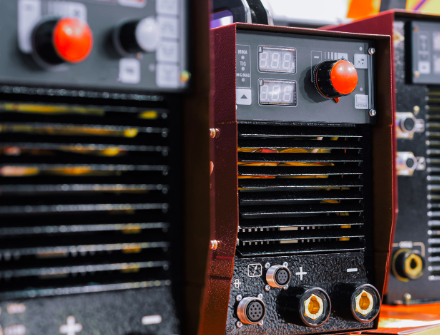Last Updated on November 25, 2022 by mdmtool
There is often confusion between converters and inverters, as both devices serve similar purposes. Generally, a converter changes the form of an electric current, while an inverter changes the direction.
There is a subtle but essential difference between converters and inverters. Knowing which device you need will ensure that you get the electric current you need in the form you need.
What Is A Converter?

A converter is an electronic device that changes the voltage of an alternating current (AC) to a direct current (DC).
How Does A Converter Work?
A converter works by rectifying the AC signal. This process involves changing the AC signal into a pulsing DC signal. A filter then smooths the DC signal to create a DC voltage that can be used by electronic devices.
What Is An Inverter?

An inverter is an electronic device that changes the voltage of a direct current (DC) to an alternating current (AC).
How Does An Inverter Work?
An inverter works by converting the DC signal into an AC signal. This process uses a transformer to change the DC voltage into an AC voltage. The AC voltage is then inverted back into a DC voltage.
Difference Between Converter And Inverter
Efficiency: The efficiency of a converter is higher than that of an inverter.
Conversion: The conversion of AC to DC is known as rectification, while the conversion of DC to AC is known as inversion.
Circuit: A converter circuit contains diodes, and an inverter circuit contains transistors.

Input Supply: The input supply for a converter is AC, while the input supply for an inverter is DC.
Output Supply: The output supply of a converter is DC, and the output supply of an inverter is AC.
Applications: Converters are used in electronic devices such as phones and laptops, while inverters are used in UPS and solar panels.
Advantages & Disadvantages
Advantages Of Converters
- They are easy to design and implement
- They have a high efficiency
- They have a wide range of applications
Advantages Of Inverters
- They have a wide range of applications
- They are easy to design and implement
- They are relatively small in size
Disadvantages Of Converters
- They are not suitable for high-power applications
- They require a large amount of space
Disadvantages Of Inverters
- They are not suitable for high-power applications
- They have a relatively low efficiency
Types Of Converters
- AC to DC converter
- DC to AC converter
- AC to AC converter
- DC to DC converter
Types Of Inverters

- Sine Wave Inverter
- Square Wave Inverter
- Modified Sine Wave Inverter
FAQs
How Long Can The Inverter Run Continuously?
The inverter can run continuously for up to 8 hours.
Should You Keep Your Inverter On All The Time?
No, it would be best if you only turned on the inverter when you needed to use it.
Can I Use A Converter And An Inverter Together?
Yes, you can use a converter and an inverter together. However, you will need to purchase a separate converter and inverter for each device you want to use.
What Is An Inverter Charger?
An inverter charger is a device that converts DC power into AC power and also charges a battery.
Conclusion
Inverters and converters are both electronic devices that serve similar purposes. However, there are some critical differences between them. Knowing which device you need will ensure that you get the electric current you need in the form you need.





